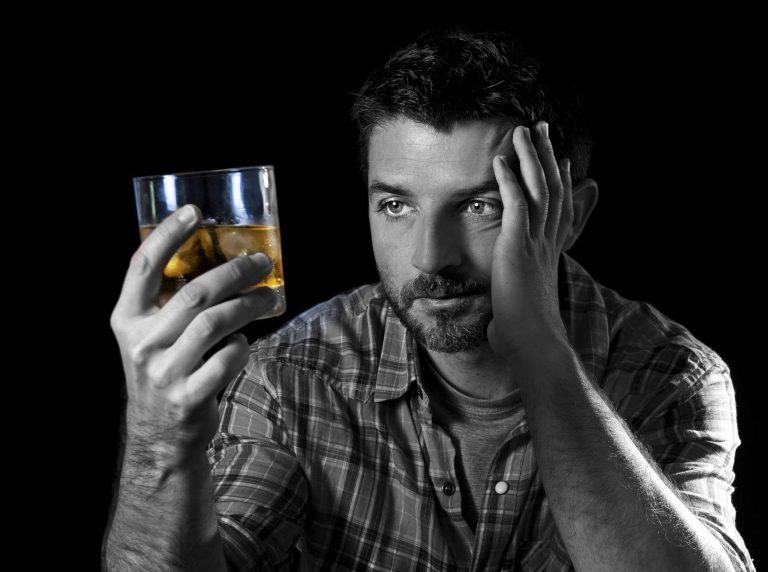LifeRing believes that each individual holds their own key to recovery, and it is not necessary to then place control in the hands of a spiritual being. A balanced diet is a crucial component of a healthy lifestyle, especially during recovery. Eating nutritious foods and maintaining a well-rounded diet will provide your body with the essential nutrients it needs to perform optimally and support your overall health. 7 Cups is an online platform that provides free, anonymous emotional support through http://seaman-sea.ru/tankera/599-podgotovka-tankera-k-proverke.html trained listeners and online therapy sessions. It offers a safe and confidential space to access emotional support and mental health services.
Building Strong Support Systems
Celebrate each day spent sober and acknowledge those victories in a way that is special to you. One of the best middle-ground options out there is online treatment. Although it can’t help with medical detox, practically every other aspect of a well-rounded rehab program can be done through your phone. Not only is this much more flexible to your schedule, it’s also significantly more affordable. If you are tapering off alcohol or pursuing moderation, it helps to give yourself objective data. Use a drink-tracking app, a notebook, or a breathalyzer to record how much you are actually drinking every day.

Reach out now and join our supportive

These groups are good options if you are seeking a more secular approach to recovery while also desiring peer support and group sessions. Start by talking to a doctor to make sure it is safe for you to go through withdrawal without medical care, and create a list of people to call just in case. If you think you can stick with it, creating a tapering schedule and gradually reducing how much you drink is usually the best approach.
- It’s important to develop a structured daily and weekly schedule and stick to it.
- Exercise will get your endorphins pumping, reduce cravings, and make you feel better.
- Rehab programs are the right choice for some people, but they can be too expensive for others.
- Feeling guilty or ashamed of past behavior or actions during active addiction is natural and healthy.
- Your first responsibility is to your recovery, and it’s important to protect it by making necessary changes.
On New Year’s Eve, after I took that shot, I felt, well — shot. I had that warm, flushed, and generally toxic feeling I remembered acutely from when I drank. Is my reaction to alcohol because I have an allergy to alcohol that sets off a physical craving for which there is no cure? Without a doubt, going to Alcoholics Anonymous meetings and being a part of the fellowship saved my life. Most of them involve an oyster swimming in its own juice or tomato juice, though sometimes it’s cocktail sauce.
Therapy
Your recovery journey is yours for a reason – no one else can do it for you, and no one else can tell you where or when you should be on that recovery path. If you are taking the process one day at a time and are doing the best you can with the tools you have, there is nothing to be ashamed of. Comparing yourself to others is more likely to set you behind than push you forward.
How Do I Find a Sober Community?

It’s important to learn how to manage your emotions in a healthy way. One way to do this is to practice mindfulness, which can help you stay present and aware of your thoughts and feelings. There are http://www.sapkowski.su/modules.php?name=Articles&pa=showarticle&artid=12&page=8 many reasons why someone may choose to stay sober without AA. For some, the structured nature of AA may not feel like the right fit for their personal recovery journey. The facility, staff, & counselors made me feel like the most important person in the world. I learned effective practices that will make my recovery journey a lifetime goal.
All that matters is that it’s a group of individuals you feel comfortable enough sharing your struggles with and can relate to. The most impactful and beneficial aspect of Alcoholics Anonymous or a drug program is the community. Lying to loved ones about what you’re doing and with whom, or feelings of shame about your problem can lead to feelings of isolation. The further you stray from who you used to be, the more you feel that you can’t relate to others (or that they can’t relate to you). Having peers who are going through or have dealt with the struggles of alcoholism provides much-needed emotional support.

How to quit drinking and stay sober without AA
- Some people cannot make it to AA meetings due to transportation issues, work responsibilities, family commitments, or other reasons.
- These groups are good options if you are seeking a more secular approach to recovery while also desiring peer support and group sessions.
- Strictly speaking, sobriety is the state of being sober—not being under the influence of alcohol or drugs.
- Urges and cravings are intense compulsions to reengage with drugs or alcohol.
She said, “If this is what getting sober is like, I’ll just keep drinking.” Thankfully, 15 years later, she found another way and is thriving in recovery. Of all the things that support my sobriety, one of the most critical is knowing that there are sober people are all around me, inside and outside formal programs like AA. Sometimes, for example, I’ll find myself liking the way alcohol smells or tastes on my partner’s mouth. Or I’ll feel left out when I’m at a dinner party and everyone else is drinking. From my very first meeting, http://www.sequencer.ru/forum/2/1636.html I learned a lot about addiction and how my addictive nature manifests. I worked with a sponsor and did the Steps, which gave me tons of invaluable insight into myself and my experience.

The Importance of Transparency During the Rehab Process
That said, there have always been people who are able to quit drinking without a group or a program. HAMS is a peer-led group that provides support and information to those who want to change their drinking habits. It’s an AA alternative that involves 17 steps instead of 12, and supports moderate drinking and harm reduction in addition to full sobriety. It’s about embracing holistic approaches that consider all factors influencing one’s relationship with alcohol rather than focusing solely on abstaining from its consumption. The good news is there are many other paths to help you moderate or manage your alcohol use, or to achieve full sobriety.